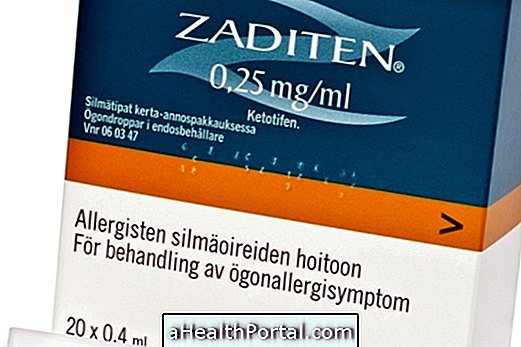Cefaliv is a medicine that contains dihydroergotamine mesylate, dipyrone monohydrate and caffeine, which are indicated components for the treatment of headache attacks of vascular origin, including migraine attacks.
This medicine is available in pharmacies for a price of about 12 to 16 reais, and it is necessary to present a prescription to buy it.

How to use
Generally, the dosage of this medicine is 1 to 2 tablets as soon as the first sign of migraine arises. If you do not feel any symptoms improve, you can take another tablet every 30 minutes, up to a maximum of 6 tablets per day.
This medicine should not be used for more than 10 days in a row. If pain persists, consult your doctor. Get to know other remedies that can be used for migraine.
Who should not use
Cefaliv should not be used by people who are hypersensitive to any of the ingredients in the formula, those under 18 years of age, pregnant or breastfeeding women.
In addition, this drug is also contraindicated in people with severe impairment of liver and kidney function, who have uncontrolled hypertension, peripheral vascular disease, history of acute myocardial infarction, angina pectoris, and other ischemic heart disease.
Cefaliv should also not be used in people with prolonged hypotension, sepsis after vascular surgery, basilar or hemiplegic migraine, or people with a history of bronchospasm or other allergic reactions induced by non-steroidal anti-inflammatory drugs.
Possible side effects
The most common side effects that can occur with Cefaliv are nausea, stomach pain or discomfort, dizziness, drowsiness, vomiting, muscle aches, dry mouth, weakness, increased sweating, abdominal pain, mental confusion, insomnia, diarrhea, constipation, chest pain, palpitations, increased or decreased heartbeat, increased or decreased blood pressure.
In addition, changes in circulation may occur due to blood vessel contractions, changes in blood sugar regulation, changes in sex hormone levels, difficulty in getting pregnant, increased blood acidity, nervousness, irritability, tremors, contractions muscle cramps, agitation, back pain, allergic reactions, decreased blood cells and worsening of kidney function.
























